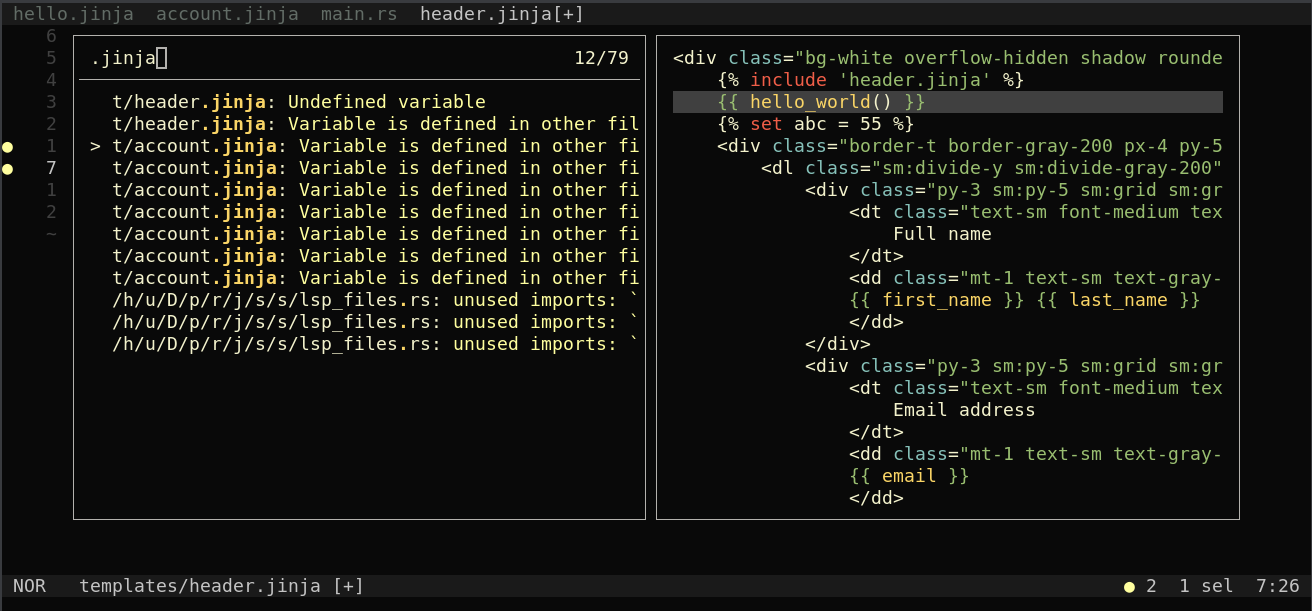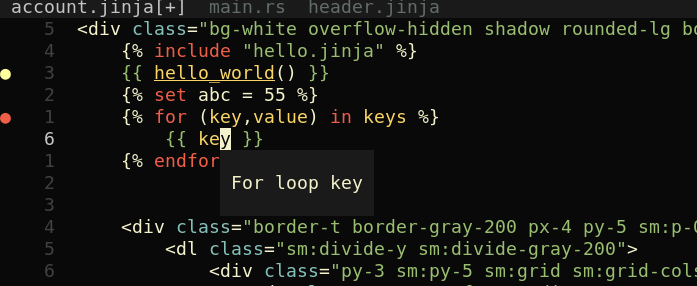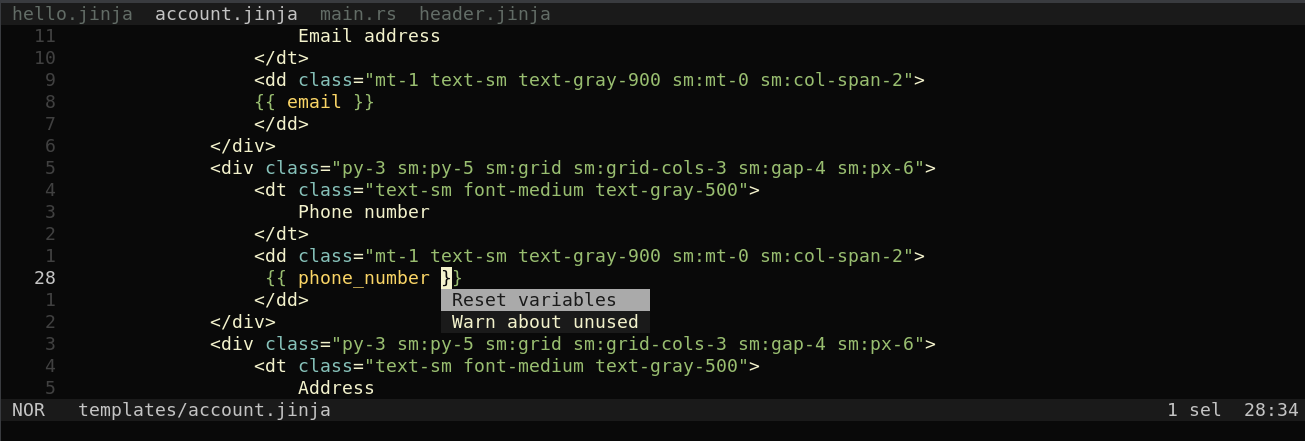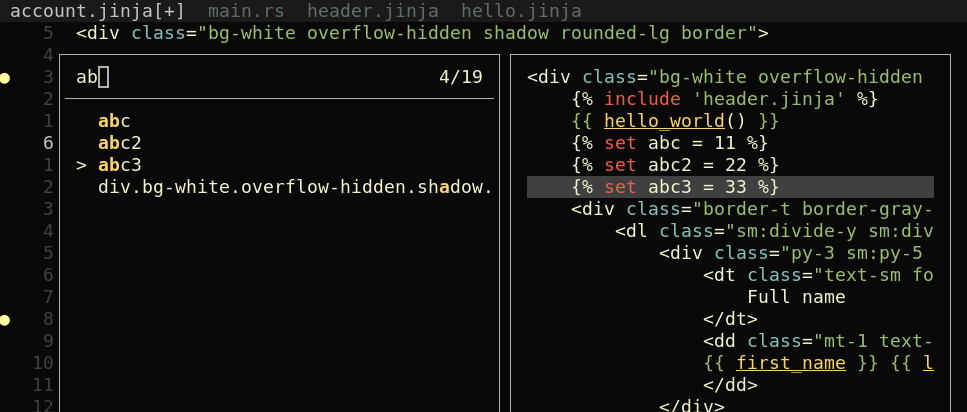
jinja-lsp enhances minijinja development experience by providing Helix/Nvim users with advanced features such as autocomplete, syntax highlighting, hover, goto definition, code actions and linting. Installationor download binary from releases page. FeaturesAutocompleteIntelligent suggestions for variables in current template, as well as variables, templates and filters defined on backend side. 


LintingHighlights errors and potential bugs in your jinja templates. 


Hover PreviewSee the complete filter or variable description by hovering over it. 

Code ActionsIt's recommended to reset variables on server in case you rename/delete file. 

Goto DefinitionQuickly jump to definition. Works for Rust identifiers as well. https://github.com/uros-5/jinja-lsp/assets/59397844/015e47b4-b6f6-47c0-8504-5ce79ebafb00 Snippets
Document symbols
ConfigurationLanguage server configuration(all fields are optional) Helix configuration Neovim configuration
Adding custom template extensions:Custom jinja filtersYou can also write configuration in: Python Rust Supported languages: Python, Rust |

